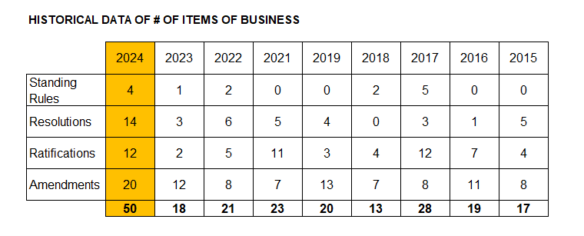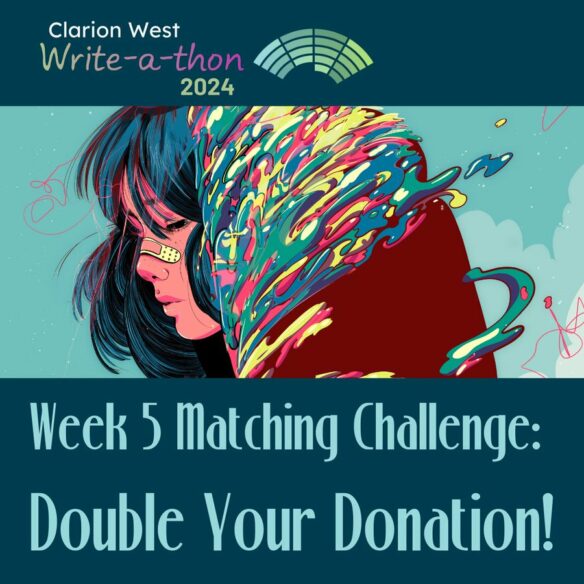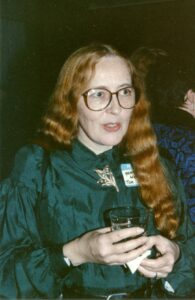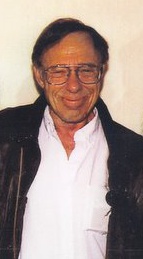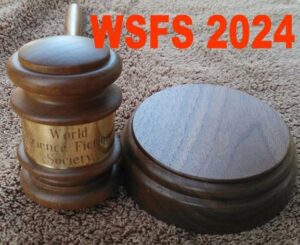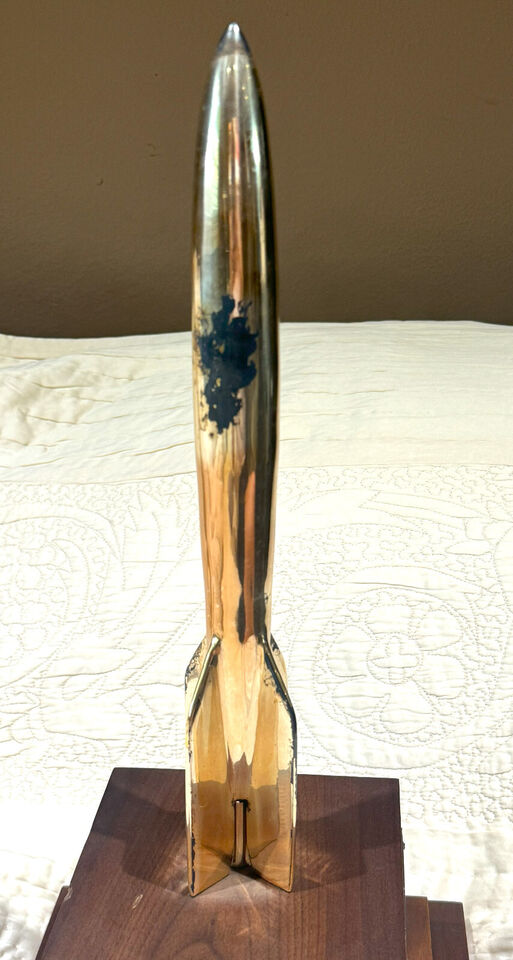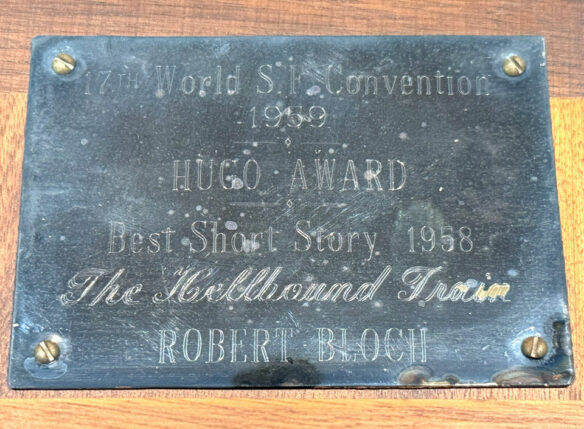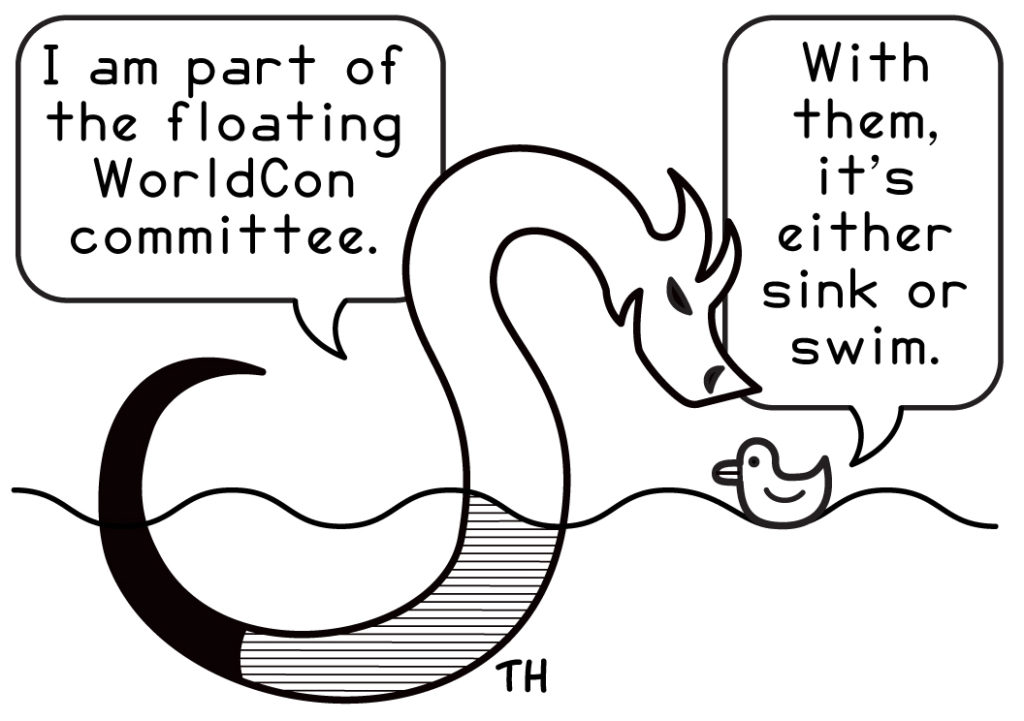INTRODUCTION. The deadline to submit proposals to the Glasgow 2024 Business Meeting was July 10. The formal agenda will be out soon, but in the meantime the movers of 15 submitted items have provided copies for publication and discussion on File 770.
“Independent Hugo Administration” calls for transfer of Hugo Awards administration to a corporation (WSFA), which nevertheless “would be responsible for administering the Hugo Awards under the auspices of this Constitution”. It will be mandatory of the corporation to appoint a Hugo Award Administration Subcommittee (HASC) to administer the Hugo Awards for a given Worldcon.
The measure establishes a source of funds for the corporation to pay for legal and technical requirements, and to ensure that every Worldcon pays licensing fees for the marks, keeping them legally controlled and constrained by the contract of sale.
The proposal would not take effect “until the conclusion of the Worldcon two years following the ratification of this motion.”
The proposal includes numerous copyediting changes to remove “Mark Protection Committee” or Worldcon committee and replace it with WSFA where needed.
SHORT TITLE: INDEPENDENT HUGO ADMINISTRATION
Moved: To assign specific duties associated with Worldcons to a standing body that exists separately from the convention of Worldcon and has responsibility for maintaining the service marks of WSFS and associated items with due care and responsibility. This corporation shall be referred to in this document as WSFA, but may be renamed at the discretion of the Business Meeting at the time of consideration of this motion.
This corporation shall be formed by and shall assume all assets and responsibilities of the Mark Protection Committee and Worldcon Intellectual Property.
Material to be struck out is shown in strikethrough type. Material to be added is shown in underline type.
1. Amend Article 1 as follows:
Section 1.3: Restrictions. No part of the Society’s net earnings shall be paid to its members, officers, or other private persons except in furtherance of the Society’s purposes. The Society shall not attempt to influence legislation or any political campaign for public office. Should the Society dissolve, its assets shall be distributed by the current Worldcon Committee WSFA or the appropriate court having jurisdiction, exclusively for charitable purposes. In this section, references to the Society include the Mark Protection Committee WSFA and all other agencies of the Society but not convention bidding or operating committees.
[….]
Section 1.6: Authority.
1.6.1: Authority and responsibility for all matters concerning the Worldcon, except those reserved herein to WSFA, WSFS, or any of its committees established in this Constitution, shall rest with the Worldcon Committee, which shall act in its own name and not in that of WSFS or WSFA.
1.6.2: The Worldcon Committee may elect to hold a Hugo Award Ceremony to present the Hugo Awards, although it is not required to do so. Holding such a ceremony does not include any right to be included in the administration of the Hugo Awards.
Section 1.7: The Mark Protection Committee WSFA
1.7.1: There shall be a Mark Protection Committee of WSFS, which WSFA shall be responsible for registration and protection of the marks used by or under the authority of WSFS and the administration of the Hugo Awards.
1.7.2: The Mark Protection Committee WSFA shall submit to the Business Meeting at each Worldcon a report of its activities since the previous Worldcon, including a statement of income and expense.
1.7.3: The Mark Protection Committee shall hold a meeting at each Worldcon after the end of the Business Meeting, at a time and place announced at the Business Meeting. WSFA shall meet, at a minimum, once a quarter, on a schedule to be published to all WSFS members at least fourteen (14) days before each meeting. These meetings shall be public, except when legal reasons may require a closed meeting.
1.7.4: The Mark Protection Committee WSFA shall determine and elect its own officers at one of its quarterly meetings. This meeting will be noted in the published schedule.
1.7.5: WSFA shall be responsible for arranging for the administration of each year’s Hugo Awards as provided elsewhere in this Constitution. This may not be done by asking the current Worldcon to do such administration, to preserve independence.
1.7.6: WSFA shall be supported by mark licensing fees paid by each Worldcon, which shall amount to not more than 5% of a WSFS membership or 10% of an attending supplement per member of that Worldcon, and not less than the cost to maintain the service or trade marks for the year and any expenses associated with administering the Hugo Awards (and Site Selection, should the Worldcon elect to ask them to do so).
Section 1.8: Membership of the Mark Protection Committee WSFA
1.8.1: The Mark Protection Committee WSFA shall consist of:
(1) One (1) member appointed to serve at the pleasure of each future selected Worldcon Committee and each of the two (2) immediately preceding Worldcon Committees,
(2) One (1) member appointed to serve at the pleasure of each future selected NASFiC Committee and for each Committee of a NASFiC held in the previous two years, and
(3) Nine (9) members elected three (3) each year to staggered three-year terms by the Business Meeting. And,
(4) Any hired staff (full- or part-time) WSFA chooses to employ for purposes such as legal, accounting, or other professional services.
1.8.2: Newly elected members take their seats, and the term of office ends for elected and appointed members whose terms expire that year, at the end of the Business Meeting.
1.8.3: If vacancies occur in elected memberships in the Committee WSFA, the remainder of the position’s term may be filled by the Business Meeting, and until then temporarily filled by the Committee the remaining members of WSFA.
1.8.X: WSFA members other than paid staff may be recalled at any time by two-thirds vote of a WSFS Meeting. If this happens, they are not eligible for re-election or re-appointment for at least two (2) complete terms after the completion of the one in which they were recalled.
1.8.Y: WSFA may also choose to remove one of its own members by unanimous vote (excepting the member under consideration). In this case, the seated Worldcon shall be asked to provide a replacement member until the next WSFS Meeting can elect a replacement. This election shall be held regardless of how the removed member was appointed to WSFA.
1.8.Z: Paid WSFA staff may be let go only by two-third vote of WSFA members.
2. Amend Article 2 as follows:
Section 2.1: Duties. Each Worldcon Committee shall, in accordance with this Constitution, provide for
(1) administering the Hugo Awards,
(2) (1) administering any future Worldcon or NASFiC site selection required, and
(3) (2) holding a WSFS Business Meeting.
The Worldcon may, at its discretion, ask WSFA to also administer any required site selection.
Section 2.2: Marks. Every Worldcon and NASFiC Committee shall include a notice in each of its publications that clearly acknowledges the service marks of the Society. The Mark Protection Committee WSFA shall supply each Worldcon committee with the correct form of such notice.
3. Amend Article 3 as follows:
Section 3.1: Introduction. Selection of the Hugo Awards shall be made as provided in this Article.
Section 3.2: General.
[….]
3.2.8: The Worldcon WSFA shall not consider previews, promotional trailers, commercials, public service announcements, or other extraneous material when determining the length of a work. Running times of dramatic presentations shall be based on their first general release.
3.2.9: The Worldcon Committee WSFA may relocate a story into a more appropriate category if it feels that it is necessary, provided that the length of the story is within twenty percent (20%) of the new category limits.
[….]
3.2.11: The Worldcon Committee WSFA may relocate a dramatic presentation work into a more appropriate category if it feels that it is necessary, provided that the length of the work is within twenty percent (20%) of the new category boundary.
[….]
3.2.13: The Worldcon Committee WSFA is responsible for all matters concerning the Awards, although the Worldcon may be asked to participate in marketing and distributing materials related to the Awards.
3.2.X: Worldcon Committee shall make available to WSFA sufficient information, including mailing and electronic mail contact information for WSFS members of their Worldcon, to permit the WSFA to administer the Hugo Awards. WSFA shall exercise due care to protect this information and shall delete any such information after it is no longer needed toadminister the Hugo Awards for a given year.
Section 3.3: Categories.
[….]
3.3.20: Additional Category.
3.3.20.1: Not more than one special category Special Category may be created by the current Worldcon Committee with nomination and voting to be the same as for the permanent categories.
3.3.20.2: The Worldcon Committee must inform WSFA of their intent to present a Special Category at least three hundred and thirty (330) days before the first day of that Worldcon.
3.3.20.3: WSFA may not create a Special Category unless requested to do so by the Worldcon Committee.
3.3.20.4: The Worldcon Committee is not required to create any such category Special Category; such action by a Worldcon Committee should be under exceptional circumstances only; and any Special Category created by one Worldcon Committee shall not be binding on following Committees or WSFA, following the year in which it was requested and duly administered.
3.3.20.5: Awards created under this paragraph section shall be considered to be Hugo Awards.
[….]
Section 3.5: Name and Design. : The Hugo Award shall continue to be standardized on the rocket ship design of Jack McKnight and Ben Jason as refined by Peter Weston. Each Worldcon Committee may select its own choice of base design. The name (Hugo Award) and the design shall not be extended to any other award
3.5.1: The Hugo Award shall continue to be standardized on the rocket ship design of Jack McKnight and Ben Jason as refined by Peter Weston.
3.5.2: If the Worldcon Committee elects to hold a Hugo Award ceremony, it may select its own choice of base design. If they do so, manufacture of the award trophy and the distribution of trophies to the winners shall be the responsibility of the Worldcon Committee.
3.5.5: If the Worldcon Committee declines or is unable to hold a Hugo Award ceremony, WSFA must still publish the winners, nominees, and long list as provided for elsewhere in this document. WSFA may opt to hold a ceremony at a time and place of its choosing, including strictly virtually. All finalists shall be invited to any such ceremony.
3.5.6: The name (Hugo Award) “Hugo Award” and the design of the Hugo Award trophy rocket shall not be extended to any other award, including any other Awards presented by the Worldcon Committee.
Section 3.6: “No Award”. At the discretion of WSFA an individual Worldcon Committee, if the lack of nominations or final votes in a specific category shows a marked lack of interest in that category on the part of the voters, the Award in that category shall be canceled for that year.
Section 3.7: Nominations.
3.7.1: The Worldcon Committee WSFA shall conduct a poll to select the finalists for the Award voting. Each member of the administering current Worldcon or the immediately preceding Worldcon as of January 31 of the current calendar year shall be allowed to make up to five (5) equally weighted nominations in every category.
3.7.2: The Committee WSFA shall include with each nomination ballot a copy of Article 3 of the WSFS Constitution and any applicable extensions of eligibility under Section 3.4.
3.7.3: Nominations shall be solicited only for the Hugo Awards, the Astounding Award for Best New Writer, and the Lodestar Award for Best Young Adult Book.
Section 3.8: Tallying of Nominations.
3.8.1: Except as provided below, the final Award ballots shall list in each category the six eligible nominees receiving the most nominations as determined by the process described in Section 3.9.
3.8.2: The Worldcon Committee WSFA shall determine the eligibility of nominees and assignment to the proper category of works nominated in more than one category.
3.8.3: If any series and a subset series thereof both receive sufficient nominations to appear on the final ballot, only the version which received more nominations shall appear.
3.8.4: Any nominations for “No Award” shall be disregarded.
3.8.5: If a nominee appears on a nomination ballot more than once in any one category, only one nomination shall be counted in that category.
3.8.6: If there are more than two works in the same category that are episodes of the same dramatic presentation series or that are written works that have an author for single author works, or two or more authors for co-authored works, in common, only the two works in each category that have the most nominations shall appear on the final ballot. The Worldcon Committee WSFA shall make reasonable efforts to notify those who would have been finalists in the absence of this subsection to provide them an opportunity to withdraw. For the purpose of this exclusion, works withdrawn shall be ignored.
3.8.7: The Committee WSFA shall move a nomination on an individual ballot from another category to the work’s default category only if the member has made fewer than five (5) nominations in the default category.
3.8.8: If a work is eligible in more than one category, and if the work receives sufficient nominations to appear in more than one category, the Worldcon Committee WSFA shall determine in which category the work shall appear, based on the category in which it receives the most nominations.
3.8.9: If a work receives a nomination in its default category, and if the Committee WSFA relocates the work under its authority under subsection 3.2.9 or subsection 3.2.11, the Committee WSFA shall count the nomination even if the member already has made five (5) nominations in the more-appropriate category.
[….]
Section 3.10: Notification and Acceptance.
3.10.1 Worldcon Committees WSFA shall use reasonable efforts to notify the finalists, or in the case of deceased or incapacitated persons, their heirs, assigns, or legal guardians, in each category prior to the release of such information. Each person notified shall be asked at that time to either accept or decline the nomination. If the person notified declines nomination, that finalist(s) shall not appear on the final ballot. The procedure for replacement of such finalist(s) is described in subsection 3.9.4.
3.10.2 In the Best Professional Artist category, the acceptance should include citations of at least three (3) works first published in the eligible year.
3.10.3 Each finalist in the categories of Best Fanzine and Best Semiprozine shall be required to provide information confirming that they meet the qualifications of their category.
Section 3.11: Voting.
3.11.1: WSFA shall conduct Final Award voting shall be by balloting in advance of the Worldcon. Postal Ballots cast by postal mail shall always be acceptable. Only WSFS members may vote. Final Award ballots shall include name, signature, address, and membership-number spaces to be filled in by the voter; however, if the voter does not have their membership number, it may be supplied by the Hugo Administrator or their a designated staff member of WSFA.
3.11.2: Final Award ballots shall list only the Hugo Awards, the John W. Campbell Award for Best New Writer, and the Lodestar Award for Best Young Adult Book.
3.11.3: “No Award” shall be listed in each category of Hugo Award on the final ballot.
3.11.4: The Committee WSFA shall, on or with the final ballot, designate, for each finalist in the printed fiction categories, one or more books, anthologies, or magazines in which the finalist appeared (including the book publisher or magazine issue date(s)).
3.11.5: Voters shall indicate the order of their preference for the finalists in each category.
Section 3.12: Tallying of Votes.
3.12.1: In each category, tallying shall be as described in Section 6.4. “No Award” shall be treated as a finalist. If all remaining finalists are tied, no tie-breaking shall be done and the finalists excluding “No Award” shall be declared joint winners.
3.12.2: “No Award” shall be the run-off candidate for the purposes of Section 6.5.
3.12.3: The complete numerical vote totals, including all preliminary tallies for first, second, . . . places, shall be made public by the Worldcon Committee WSFA within ninety (90) days after the Worldcon.
During the same period, the results of the last ten rounds of the finalist selection process for each category (or all the rounds if there are fewer than ten) shall also be published.
Section 3.X: Hugo Award Administration Subcommittee.
3.X.1: WSFA shall each year appoint a Hugo Award Administration Subcommittee (HASC) consisting of eligible competent persons to administer the Hugo Awards for a given Worldcon.
3.X.2: Only WSFS members shall be eligible to join the HASC, regardless of any position in WSFA.
3.X.3: When the membership of the HASC has been selected and all selected members have agreed, the membership of the HASC shall be made public.
3.X.4: The HASC may consist of members of WSFA and/or other persons. Members of the HASC shall serve at the pleasure of the WSFA, and may be removed by a majority vote of the members of WSFA at any time during their term.
3.X.5: The HASC shall be responsible to WSFA regarding any decisions regarding eligibility and other interpretations of the Hugo Award rules in this Article, and shall publish a listing of such decisions and their rationales alongside the statistics required elsewhere in this Constitution.
3.X.6: The HASC shall have use of the existing WSFS websites and social media accounts currently controlled by the Mark Protection Committee.
Section 3.13: Exclusions.
No serving member of the current Worldcon Committee WSFA, the Hugo Award Administration Subcommittee, or any publications or other works closely connected with those Committees these persons shall be eligible for an Award. However, should the Committee delegate all authority under this Article to a Subcommittee whose decisions are irrevocable by theWorldcon Committee, then this exclusion shall apply to members of the Subcommittee only.
Section 3.14: Retrospective Hugo Awards.
3.14.1: A Worldcon held in a year that is an exact multiple of 25 years after a year in which no Hugo Awards were awarded may require WSFA and the HASC to conduct nominations and elections for retrospective year Hugo Awards for that year with procedures as for the current Hugo Awards, provided that year was 1939 or later and that no previous Worldcon has awarded retrospective year Hugo Awards for that year.
3.14.2: In any listing of Hugo Award winners published by a Worldcon committee, WSFA, or WSFS, retrospective Hugo Awards shall be distinguished and annotated with the year in which such retrospective Hugo Awards were voted.
Provided that the changes in this motion shall not take effect until the conclusion of the Worldcon two years following the ratification of this motion.
SPONSORS: Kate Secor, Kevin Sonney
DISCUSSION: The prestige of the Hugo Awards has been severely tarnished over the last few years. While some of this is due to the public’s fundamental misunderstanding of how the Hugo Awards are administered, it is also due to concerns over the award traveling around and being administered by a new group every year. It is extremely difficult to maintain institutional knowledge without an institution, and continued insistence on “using our own stuff” means that administrative functions cannot be guaranteed to be consistently run year over year.
It is time that WSFS took the Hugo Awards seriously and put some money into starting a real, honest to goodness corporation, which would be responsible for administering the Hugo Awards under the auspices of this Constitution.
This measure also establishes a funding mechanism for the new organization to pay for legal and technical requirements (and to ensure that every Worldcon pays licensing fees for the marks, keeping them legally controlled and constrained by the contract of sale).
It is the belief of the sponsors of this motion that having a continuing organization which can be held responsible for use of the marks and for award administration year over year will help restore confidence in the Awards as the premier fan-chosen SFF award. It also provides explicitly for how members of the corporation may be added or removed, and permits the corporation to hire actual professionals for matters like legal or accounting requirements.
While many Business Meeting regulars have been scarred by the spectre of WSFS, Inc. from the 1970s, after 50 years, it’s probably time to reconsider the idea. The world has changed, and a professional, standardized organization to do paperwork and administration is not going to run Worldcon as we know it.


